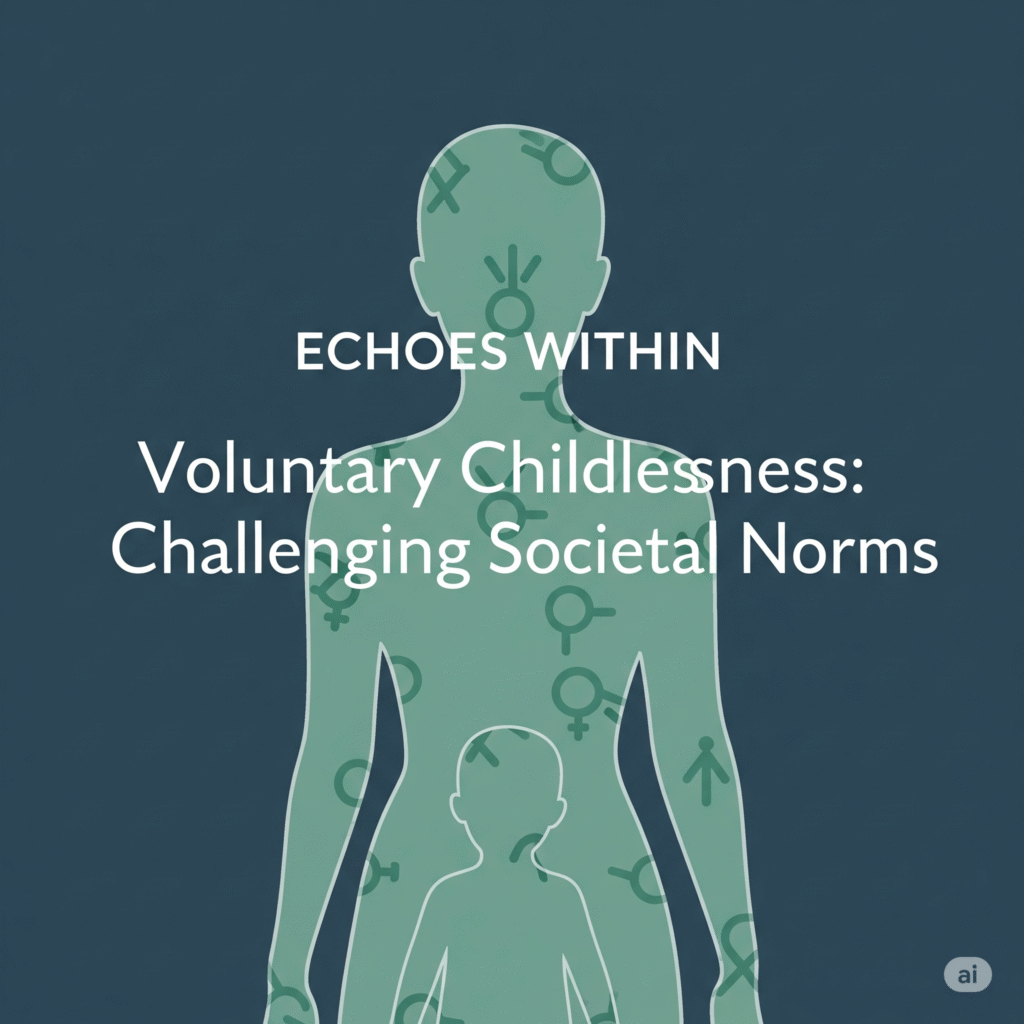Introduction: When Choosing Not to Have Children Becomes a Statement
In a world where parenthood has long been considered a life milestone, a growing number of people are choosing a different path. Voluntary childlessness, or the conscious decision not to have children, is rapidly gaining visibility. Yet, this choice still faces scepticism, stigma, and outright judgment.
Why would someone choose a child-free life? And more importantly, why does society often react so strongly against it?
What Is Voluntary Childlessness?
Voluntary childlessness refers to deliberately deciding not to have biological or adopted children, regardless of age or relationship status. Unlike those who remain childless due to circumstances or infertility, voluntarily child-free individuals actively reject parenthood, not out of loss, but out of preference.
This choice is not new. However, in recent years, it has become a clear and growing trend, especially among younger generations in urban and educated populations worldwide.
Why Are More People Choosing to Be Child-Free?
People opt out of parenthood for many personal and practical reasons. Some of the most common include:
-
Desire for Freedom and Independence
Many individuals value their personal time, financial freedom, and ability to travel or explore life without restrictions. -
Career and Life Goals
Some prioritise their careers, passions, or relationships, and feel fulfilled without the demands of parenting. -
Environmental and Ethical Concerns
Others worry about overpopulation, climate change, or the moral implications of bringing children into an uncertain world. -
Health and Mental Well-Being
For some, the physical or emotional toll of parenthood feels overwhelming or undesirable. -
No Parental Instinct
Quite simply, not everyone feels the urge to become a parent, and that should be okay.
Challenging the “Natural” Path
Despite the logic and legitimacy behind the decision, voluntarily child-free individuals often face intense criticism. In many cultures, especially traditional ones, marriage and reproduction are seen as not just expected, but morally required.
Statements like “You’ll regret it later” or “You’re being selfish” are common. In reality, choosing not to have children often involves deep reflection, not impulsiveness or irresponsibility.
Moreover, critics rarely ask whether every person who does have children is truly prepared for the responsibility. Parenthood by default is rarely questioned, but voluntary childlessness always is.
Redefining Fulfilment and Success
For decades, society equated fulfilment with family life. But today, people are expanding that definition. A meaningful life can involve travel, friendship, creativity, purpose, and personal growth, with or without children.
In fact, child-free adults often contribute richly to communities, careers, activism, and the arts. Many mentor younger people, volunteer, and support others in ways that don’t involve parenthood.
They are not missing out—they’re just writing a different story.
The Role of Media and Modern Culture
Thanks to the rise of social media, podcasts, and documentaries, more people are sharing their child-free journeys. This visibility is helping to normalise the conversation and show that fulfilment takes many forms.
Celebrities, thought leaders, and influencers have begun to speak openly about their choice to remain child-free, offering solidarity to those who once felt alone or misunderstood.
As a result, the narrative is shifting from judgment to curiosity, and from pressure to empowerment.
Conclusion: A Personal Choice, Not a Public Problem
Voluntary childlessness may challenge old norms, but it also offers new perspectives on freedom, purpose, and identity. Choosing not to have children doesn’t make someone less loving, less mature, or less human—it simply means they’ve made a conscious, intentional choice about their life path.
As the world grows more diverse in values and lifestyles, it’s time to respect all choices, not just the traditional ones.
📣 Call to Action (CTA)
💬 What does fulfillment mean to you?
Have you ever considered a child-free life—or are you living one already? Whether you’re curious, committed, or simply exploring your options, your story matters.Share your thoughts in the comments or connect with us on social media. Let’s challenge the narrative, one conversation at a time.
👉 Subscribe for more thoughtful stories on modern choices, personal freedom, and redefining life paths.
💬 What does fulfillment mean to you?
Have you ever considered a child-free life—or are you living one already? Whether you’re curious, committed, or simply exploring your options, your story matters.Share your thoughts in the comments or connect with us on social media. Let’s challenge the narrative, one conversation at a time.
👉 Subscribe for more thoughtful stories on modern choices, personal freedom, and redefining life paths.
📚 Research-Based Sources:
- The Pursuit of Perfectionism: When Good Enough Isn’t Enough
- The Sedentary Lifestyle Epidemic: How Sitting Is Killing Us Slowly
- The Rise of Digital Nomads: Is This the Future of Work?
- The End of Privacy: How Our Digital Lives Are Changing Human Behaviour
- The Elusive Art of Discipline: Why We Struggle and How to Find Our Rhythm
- Pew Research Centre. “More Americans say they’re unlikely to have children.”
(2021)
https://www.pewresearch.org/short-reads/2021/11/19/more-americans-say-theyre-unlikely-to-have-children/ - The Guardian. “I Don’t Want Children. Why is That So Hard to Accept?”
(2021)
https://www.theguardian.com/lifeandstyle/2021/jun/19/i-dont-want-children-why-is-that-so-hard-to-accept


Pingback: Cognitive Biases: Mental Shortcuts & Decisions
Pingback: Irrational Behaviour: Understanding Predictable Patterns
Your point of view caught my eye and was very interesting. Thanks. I have a question for you.